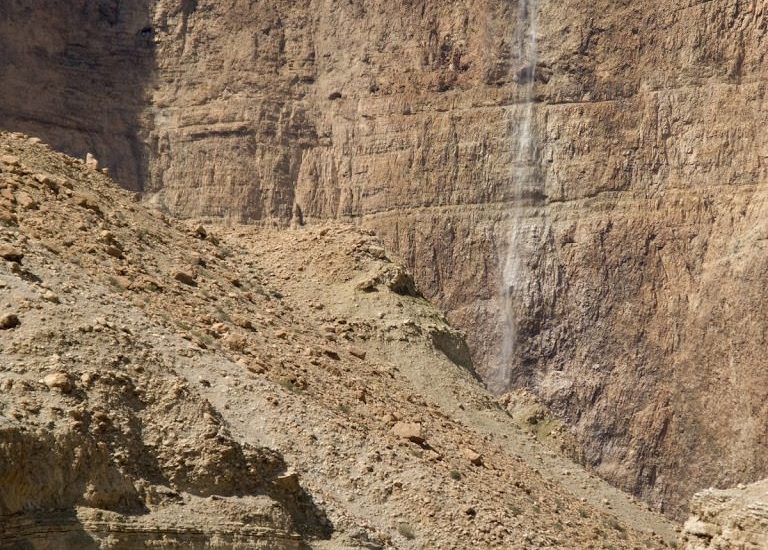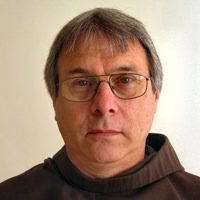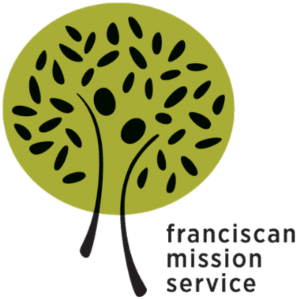Franciscan Friday: Water and Advent

 |
| Kedem Waterfall, Judean Desert, Israel (Wikicommons). |
Those who live in the Middle East know the suffering associated with life in the desert. Their very existence depends on the oftentimes scarce supply of water.
In the beginning of the second week of Advent Isaiah bases one of his lessons on this reality. In Chapter 35 he declares: “The desert and the parched land will exult; the steppe will rejoice and bloom. They will bloom with abundant flowers, and rejoice with joyful song…Streams will burst forth in the desert, and rivers in the steppe.”
The people know that water makes a huge difference in the desert, and Isaiah uses this knowledge to speak about the difference God will make in their lives.
I have had a similar experience. A few years back I was invited to spend almost a month in our Franciscan province in Australia. I was there at a time when a good part of the country was suffering from prolonged drought.
Among the places I visited was Francishaven, which is the House of Prayer for the Australian friars. The local residents were very hospitable, and showed me around both inside and outside the buildings. But it was impossible to miss the effects of the drought. The small stream on the property was completely dried up; plants were dead or dying; dust was everywhere in the air. And that is surely the image that would have stayed with me of Francishaven.
But just as I was preparing to leave, one of the friars happened to take out pictures of the house and the property. Two photos jumped out at me: they were pictures of the house taken from exactly the same angle, but one was taken when the weather was dry, and the other when there was rain. The difference was stunning! The first was exactly what I was seeing all around me on my visit. But the second showed graphically the difference that water makes. The trees were alive and in leaf, the flowers were everywhere and multicolored, the bushes and grass were bright green.
Water is essential to life. Around the world we are facing increasing difficulties in providing water and sanitation to large portions of humanity. Factors influencing scarcity include rise in global consumption; climate change; degradation of bodies of water: rivers, wetlands, water tables and bays; inequality of distribution; cross border conflicts; and privatization.
Worldwide 2 million children die every year because of water-borne diseases (diseases related to unsafe water or lack of water), 885 million people lack clean water, and 2.6 billion people have no access to basic sanitation.
The issues surrounding water and sanitation raise questions about management of this resource, and whether we are using it in sustainable, responsible and ethical ways. The Indian environmentalist Vandana Shiva reflects: “Water must be free for sustenance needs. Since nature gives water to us free of cost, buying and selling it for profit violates our inherent right to nature’s gift and denies the poor of their human rights.”
The problems associated with water and with all natural resources remind us of our responsibility for one another and of the fact that we are all children of the same family of God.
During this time of Advent, let us commit ourselves to initiating personal and communal reflection on these topics, and to find ways to challenge government to do its part to respect, promote and fulfill the right of all people to safe water and basic sanitation.
Dear God, help us to recognize that we are all your children, and that the suffering of any of your children is our own as well. Give us the strength to work untiringly for the rights of people everywhere, and to promote the equality of all our sisters and brothers.
Fr. Joseph Rozansky, OFM is a Franciscan friar of Holy Name Province. He is currently the director of the General Office for Justice, Peace and the Integrity of Creation at the OFM headquarters in Rome. He holds a Masters in Theology from the Washington Theological Coalition, and a Masters in Economics from American University in Washington, D.C. His first assignment was in Goiás, Brazil, where he worked from 1975 to 1985. He worked in formation of new Franciscans for sixteen years, in both Brazil and the United States. He has been in his current position since 2005.
Tagged in:


